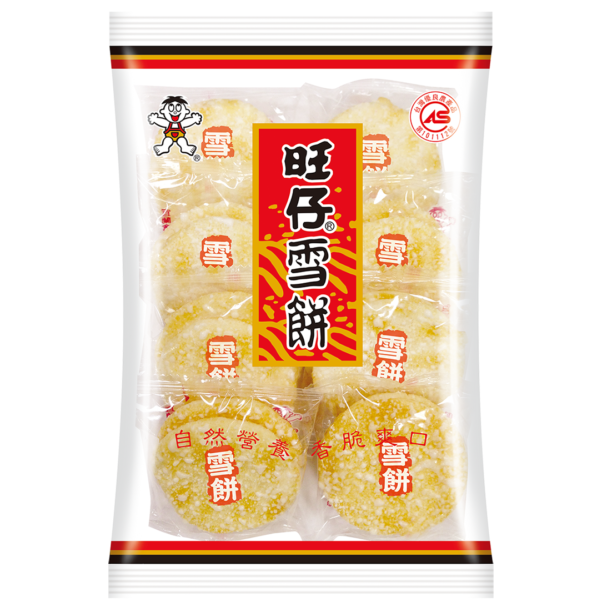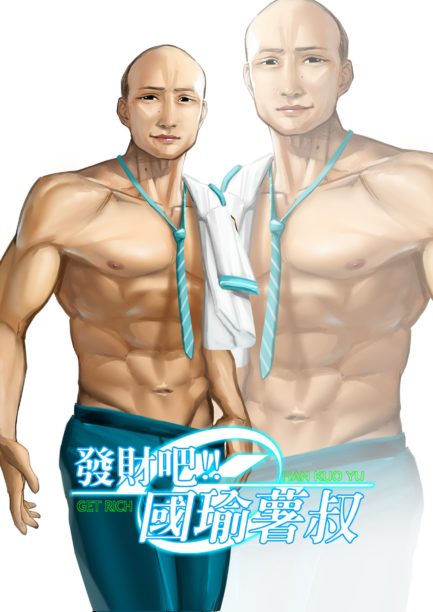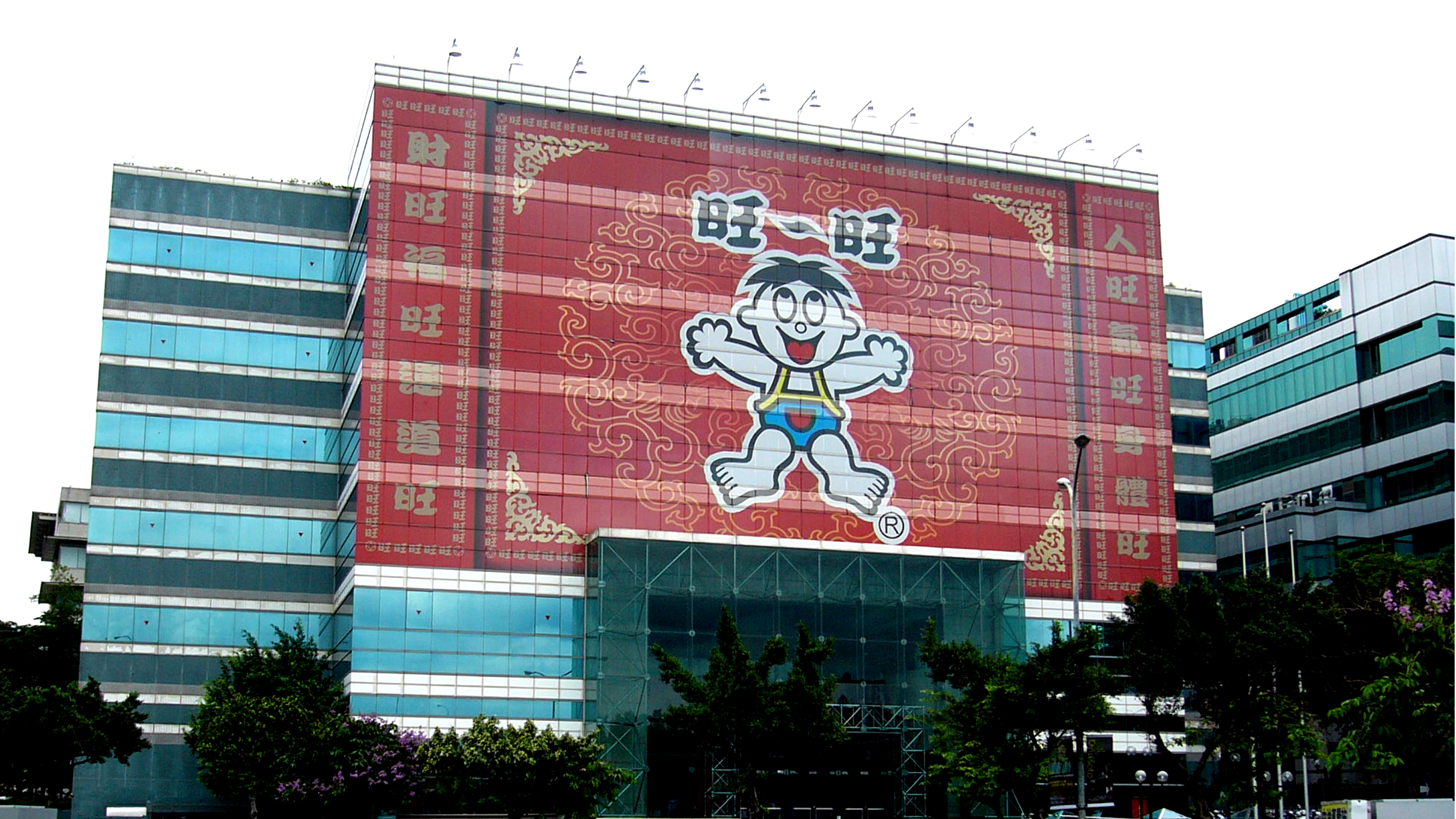The Want Want rice cracker, a product of Taiwan’s Want Want Group, was a preferred childhood snack of mine, growing up in suburban New York. I associated Want Want crackers with Taiwan, since they came from the nearest Chinese supermarket, two hours away by car. We bought them along with some other food staples my family picked up there a few times every month. I enjoyed both the savory and sweet varieties of the Want Want rice cracker, though I preferred the former. Both types were, in fact, sweet; I actually thought the savory version of the cracker tasted sweeter than the sweet one. I still remember gorging myself on Want Want crackers many days after getting home from school, sometimes getting through as much as half a bag in one sitting, and greedily licking the remnants of the cracker flavoring off my fingers.


I enjoyed both the savory and sweet varieties of the Want Want rice cracker, though I preferred the former. Both types were, in fact, sweet; I actually thought the savory version of the cracker tasted sweeter than the sweet one. I still remember gorging myself on Want Want crackers many days after getting home from school, sometimes getting through as much as half a bag in one sitting, and greedily licking the remnants of the cracker flavoring off my fingers.
My American classmates, who also enjoyed the snack whenever they came to visit, found the mascot on the distinctive green, orange, and white Want Want cracker packaging amusing. The image of this mascot, whose name is evidently “Hot-Kid,” is apparently based on the son of the CEO. In some markets, Want Want food products are referred to by the “Hot-Kid” brand instead.
A decade or so has passed and I live in Taiwan now, where Want Want crackers are available just down the street at the neighborhood 7/11. Still, it’s been five years at least since I ate one.
When I moved to Taiwan after college and became involved in activist politics, it threw me for a loop to discover that Want Want was owned by a giant right-wing media conglomerate dedicated to promoting the unification of Taiwan and China. Hot-Kid’s dad, Tsai Eng-meng, founder of the Want Want Group, is the richest man in all of Taiwan, with an estimated net worth of 5.9 billion USD. He is a very bad man. (The second richest man in Taiwan, by the way, is FoxConn CEO Terry Gou, who enslaves the Chinese workers who make your iPhone, and who last year was told by a sea goddess to run for president.)
Tsai Eng-meng’s Want Want Group is a massive conglomerate that began in food manufacturing, but expanded to holdings in everything from hotels to media. The Want Want Group owns the China Times, one of the four largest newspapers in Taiwan, and both CtiTV and the China Television Company, which are among the most viewed television networks here. China Television Company was until 2006 directly owned by the Kuomintang, the former authoritarian party in Taiwan, which still exists despite Taiwan’s ostensible transition to democracy. The Kuomintang has now become a starkly pro-unification party, despite having originally been founded by rivals of the ruling Chinese Communist Party who fled to Taiwan in the wake of their defeat by the CCP during the Civil War.
That the Want Want Group owns such a vast swath of the media landscape in Taiwan has led to protests against its “media monopoly.” The “Anti-Media Monopoly Movement” in 2012 was one of the predecessor movements of the 2014 Sunflower Movement, the student-led occupation of the Taiwanese legislature against a proposed free trade agreement with China. It was feared that this trade agreement, which would have allowed for Chinese investment in Taiwan’s service sector industries, would be deleterious to political freedom in Taiwan.
Tsai himself has made no secret of the fact that he aims to use his media empire to facilitate the unification of Taiwan and China. For Tsai, already Taiwan’s richest man, this means more business opportunities, and it means little to him if the people of Taiwan lose their political freedoms.
The Want Want Group’s efforts to promote pro-China views are quite heavy-handed. Apart from refusing to report on news depicting China in a negative light, CtiTV devoted 70% of total airtime to Kaohsiung mayor Han Kuo-yu of the Kuomintang in May. Han seems to be Tsai’s candidate for president, in preference to his oligarch rival, Terry Gou. Nonstop coverage of Han appeared in Want Want Group media both when Han sought to become the presidential candidate of the Kuomintang and afterward, after Han had successfully secured the nomination.
Naturally, it is hard to find enough news to devote 70% of airtime to a single political candidate, so this strategy led to some truly ridiculous news segments, such as reporting on the clouds appearing above Han during a speech as an “auspicious omen,” because they resembled a phoenix. Better still, CtiTV brought in an ergonomics expert to claim that the way Han holds a microphone—with only four fingers, rather than all five—illustrates Han’s intelligence, since this prevents hand fatigue. (Funnily enough, with Han coming under increasing fire for alleged issues with alcoholism and gambling, a more recent news story from an outlet of the opposite political camp claims that the way Han holds his microphone is a symptom of advanced alcoholism.) At other points, CtiTV has resorted to fake news altogether, as in inflating the crowd counts for Han’s mayoral inauguration.
The scary thing is that some people seem to believe all this! The elderly seem particularly susceptible to uncritical acceptance of media, and their main sources of information are TV stations and newspapers such as the China Times, CtiTV and China Television.
Yet it’s not Tsai alone hoping to promote pro-China views through his media empire. In July, the Financial Times published a whistleblower report that the China Times is, in fact, taking direct orders from the Chinese government regarding what stories it runs, and which ones make it to the front page; China’s Taiwan Affairs Office phones the China Times offices daily.

The Apple Daily, another one of Taiwan’s four major newspapers, though originally of Hong Kong origin, reported in May that the Want Want Group received over 477 million Chinese yuan from the Chinese government between 2017 and 2018. Reuters also reported in August that at least five Taiwanese media outlets were being paid by the Chinese government for positive press—it did not name them, but one can guess.
For its part, the Want Want Group has lashed out against critics, threatening to sue not only the Financial Times for its report but anyone who even cites the Financial Times report, with a particular focus on targeting the publicly-owned Central News Agency. So much for freedom of the press.
When I think back on my Proustian madeleine-like memories of the Want Want rice cracker, then, I can’t help but find it absurd. Who would have thought that company that produces commercials like these would also be an evil media empire bent on ensuring a permanent end to democracy in Taiwan?
I’m not the only one who grew up with childhood memories of Want Want crackers. Want Want branched into alcohol in 2010, hoping to tempt the now-adult kids who grew up with Want Want crackers. The thought would, in fact, be appealing to me if not for the fact that I’ve sworn off Want Want products forever. I’ve gradually come to think of the Want Want cracker as symbolic of my own political transitions over the years, in gradually unlearning my parent’s view of history, and coming into my own.
My parents, after all, see themselves as Chinese, rather than Taiwanese, and look forward to some romanticized notion of unification with China—and I don’t. I was a participant in the 2014 Sunflower Movement and now I work as a political journalist in Taiwan, having become one of the founders of an independent media outlet. My relation to the Want Want cracker seems, weirdly, to embody that political coming of age.
I remember very distinctly the last time I even contemplated eating a Want Want cracker. Before a party with some activist friends in the aftermath of the weeklong occupation of the Ministry of Education in August 2015, a colleague from my publication and I were shopping for some snacks to bring to the party. Presumably having also snacked on Want Want crackers growing up, I saw her put a Want Want snack into the basket.
“What are you doing?” I said. “Put that back on the shelf.”






